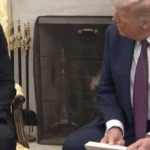OpenAI, the company behind ChatGPT, is reportedly in discussions to raise approximately $40 billion in fresh funding, nearly doubling its valuation to as much as $340 billion. The San Francisco-based AI firm was last valued at $157 billion in October 2024 after securing a $6.6 billion investment.
In a new round of financing, SoftBank is expected to lead the investment, contributing between $15 billion and $25 billion, according to sources close to the deal. A portion of the funding will be directed towards Stargate, a joint venture between OpenAI, Oracle, and SoftBank. Stargate has committed up to $500 billion to help the U.S. maintain its competitive edge over China in the AI sector. SoftBank’s latest investment will be in addition to the $15 billion it had previously pledged to the project.
OpenAI was founded in 2015 as a not-for-profit organization by Sam Altman, Elon Musk, and others. It shifted to a “capped-profit” model in 2019, with Musk departing in 2018 due to conflicts with Tesla’s own AI initiatives. Under Altman’s leadership, OpenAI has become one of the world’s most valuable private companies and a major player in the race to commercialize AI technologies, particularly those powered by large language models like ChatGPT.
However, OpenAI now faces increasing competition. Chinese AI startup DeepSeek recently unveiled its R1 chatbot, which it claims rivals ChatGPT at a significantly lower cost. Altman acknowledged the impressive capabilities of DeepSeek’s model in a recent post on X (formerly Twitter). “DeepSeek’s R1 is an impressive model, particularly around what they’re able to deliver for the price,” Altman wrote.
In response to the competition, OpenAI announced on Wednesday that it is investigating whether DeepSeek has “inappropriately distilled our models.” The company emphasized its commitment to protecting its technology and stated that it continues to work closely with the U.S. government to safeguard its most advanced AI models.
OpenAI has not yet commented on the reports regarding its new funding round. If successful, this fresh round of investment would solidify the company’s position as a leader in the rapidly growing AI sector, but it will also intensify the ongoing competition with both domestic and international players in the field.









